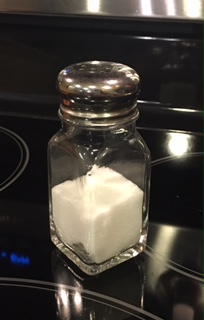By Maurita Aubrey

As I lay in bed that night, it hit me: this same thing could happen in our classrooms without us even realizing it. As educators, we try hard to create a positive learning culture in which trusting and respectful relationships are formed between us and our students. Both the classroom learning culture and our relationships with our students can be fragile (like the glass-top stove) and easily damaged by little comments or gestures we make or don’t make (like the saltshaker). The difference is that, unlike with my glass-top stove, we can’t visibly see the “cracks” in our relationships with our students.
For example, one of your first-grade students is beaming with pride and excitement as he hands you a piece of writing on which he has worked really hard. You take it from him and say, “Thank you,” add it to the pile on your desk, and continue with what you were doing. Two days later, you wonder why he isn’t as excited about writing as he used to be. Your lack of enthusiasm has caused a “crack” in your classroom’s positive learning culture and in your relationship with that student.
We might believe that the learning culture in our classrooms and the trusting and respectful relationships with our students can’t be damaged by an offhand comment or absent smile. However, that comment or lack of smile can cause a crack that might spread to the point where the damage cannot be repaired. Therefore, as educators we need to reflect every day on whether our language, both verbal and nonverbal, and our behavior are building up or tearing down our positive learning cultures and trusting relationships with our students.
Maurita Aubrey is a School Psychologist and currently works as a Literacy and Assessment/Data Consultant in Jefferson, Iowa.
News from The Daily CAFE
 Classroom Tips and Resources . . .
Classroom Tips and Resources . . .
All Aboard!*
Share Daily 5/ CAFE/ Math Daily 3 with your colleagues using these great ideas.
 Timely Ideas . . .
Timely Ideas . . .
Reading Response Journals*
These how-to videos take you from start to implementation of responding to reading.
 Activities and Lessons . . .
Activities and Lessons . . .
Improve Fact Fluency
Shannon explains the why, how, and what of math fluency.
 Focus on Health . . .
Focus on Health . . .
Learn to Relax
Change one word and get big results.





